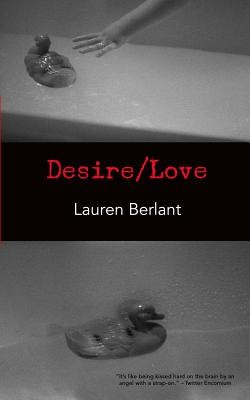
- We will send in 10–14 business days.
- Author: Lauren Berlant
- Publisher: PUNCTUM BOOKS
- Year: 2012
- Pages: 127
- ISBN-10: 0615686877
- ISBN-13: 9780615686875
- Format: 12.5 x 20.1 x 1.3 cm, minkšti viršeliai
- Language: English
- SAVE -10% with code: EXTRA
Reviews
Description
"There is nothing more alienating than having your pleasures disputed by someone with a theory," writes Lauren Berlant. Yet the ways in which we live sexuality and intimacy have been profoundly shaped by theories - especially psychoanalytic ones, which have helped to place sexuality and desire at the center of the modern story about what a person is and how her history should be read. At the same time, other modes of explanation have been offered by popular and mass culture. In these domains, sexual desire is not deemed the core story of life; it is mixed up with romance, a particular version of the story of love.
In this small theoretical novella-cum-dictionary entry, Lauren Berlant engages love and desire in separate entries. In the first entry, Desire mainly describes the feeling one person has for something else: it is organized by psychoanalytic accounts of attachment, and tells briefly the history of their importance in critical theory and practice. The second entry, on Love, begins with an excursion into fantasy, moving away from the parent-child structure so central to psychoanalysis and looking instead at the centrality of context, environment, and history. The entry on Love describes some workings of romance across personal life and commodity culture, the place where subjects start to think about fantasy on behalf of their actual lives.
Whether viewed psychoanalytically, institutionally, or ideologically, love is deemed always an outcome of fantasy. Without fantasy, there would be no love. Desire/Love takes us on a tour of all of the things that sentence might mean.
EXTRA 10 % discount with code: EXTRA
The promotion ends in 23d.14:44:07
The discount code is valid when purchasing from 10 €. Discounts do not stack.
- Author: Lauren Berlant
- Publisher: PUNCTUM BOOKS
- Year: 2012
- Pages: 127
- ISBN-10: 0615686877
- ISBN-13: 9780615686875
- Format: 12.5 x 20.1 x 1.3 cm, minkšti viršeliai
- Language: English English
"There is nothing more alienating than having your pleasures disputed by someone with a theory," writes Lauren Berlant. Yet the ways in which we live sexuality and intimacy have been profoundly shaped by theories - especially psychoanalytic ones, which have helped to place sexuality and desire at the center of the modern story about what a person is and how her history should be read. At the same time, other modes of explanation have been offered by popular and mass culture. In these domains, sexual desire is not deemed the core story of life; it is mixed up with romance, a particular version of the story of love.
In this small theoretical novella-cum-dictionary entry, Lauren Berlant engages love and desire in separate entries. In the first entry, Desire mainly describes the feeling one person has for something else: it is organized by psychoanalytic accounts of attachment, and tells briefly the history of their importance in critical theory and practice. The second entry, on Love, begins with an excursion into fantasy, moving away from the parent-child structure so central to psychoanalysis and looking instead at the centrality of context, environment, and history. The entry on Love describes some workings of romance across personal life and commodity culture, the place where subjects start to think about fantasy on behalf of their actual lives.
Whether viewed psychoanalytically, institutionally, or ideologically, love is deemed always an outcome of fantasy. Without fantasy, there would be no love. Desire/Love takes us on a tour of all of the things that sentence might mean.


Reviews